THE SPLENDOUR OF AN UNFORGIVING LAND
“Greenland is Nature’s reminder of its utter indifference to humankind”. I have no idea of who said that, but a week of cruising and visiting small villages along a coastline that truly merits the much overworked adjective “awesome” has given me reason to celebrate it.
The Viking adventurers who were the first Europeans to brave latitudes this far north of the Arctic Circle, more than 1,000 years ago, would have seen mountains covered with snow, glaciers reaching deep into the myriad fiords that cleave the sedimentary cliffs.
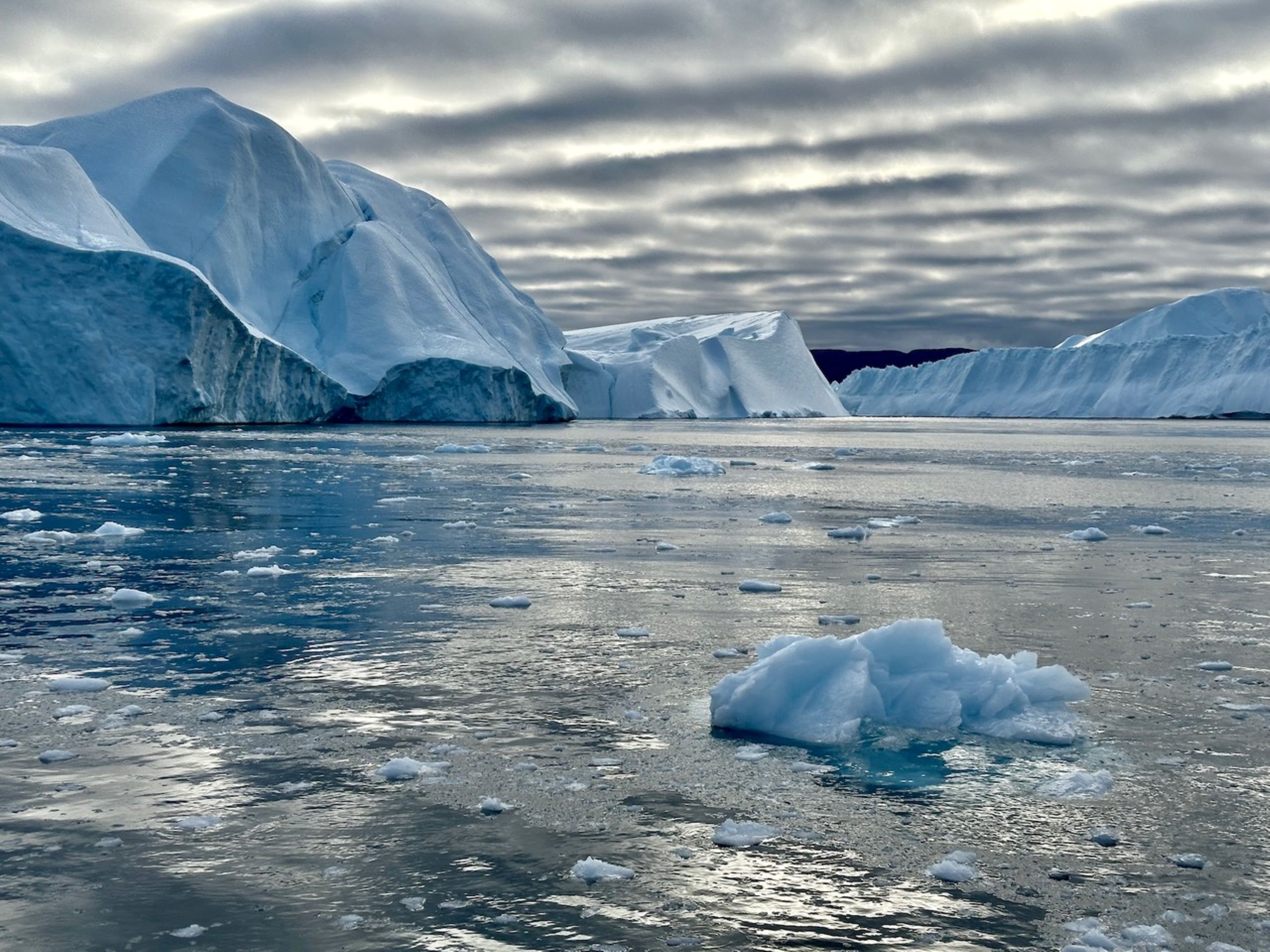
Modern “civilisation” has managed to force the glaciers back further than the millennia that preceded us did.
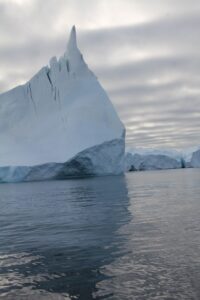
The sculpture-like mass in the photo epitomises the term “tip of the iceberg”.It broke off from the Qeqertarstaq glacier, the largest in the northern hemisphere, and has taken as long as two years to drift the 70 kilometres to the mouth of the fiord, where it’s now grounded on the 300 meter deep seabed.
In places that would seem to defy, let alone not invite humans, the Inuit people who were here long before the Vikings even guessed the place existed, lived in tune with the brutal climate.
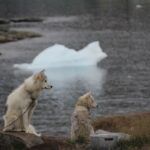
Even today, sled dogs are more important than motorised transport when the sea freezes and snow blankets the land mass for months.
In Upernavik (which incongruously mans “Spring is here”), site of the northern-most known Viking settlement in Greenland, a local hunter has the skins of a musk ox and a ringed seal, millennia-old staples of the Inuit diet, on display.
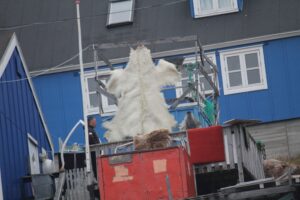
The thick, bristly pelt of a polar bear, an animal the Inuit both hunt and revere, is stretched on a drying rack outside his modest house.
The hunter neither asked, nor expected payment beyond the opportunity to provide the few outsiders who arrived on a rare cruise ship visit an insight into his culture.
Climate change and decreased fishing stocks have forced people to abandon small outlying communities that once flourished in conditions anyone not born and raised in Greenland is unlikely to understand, never mind endure and thrive in.
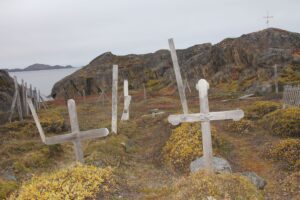
In keeping with Inuit tradition, graveyards overlook the sea. The markers carry no names. A local guide assured us everyone who left knows exactly who lies where, however.Like the people who live here, the plants are hardy, resilient and determined.
The recent find of a perfectly preserved Arctic poppy seed is the first direct evidence that all of Greenland’s ice sheet melted away in the recent geological past.
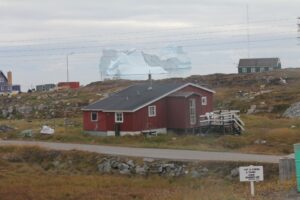
In a village so far north,the view from the front windows in the “warm months” is icebergs sliding by on their way south, the kids still have smart phones and tablets.
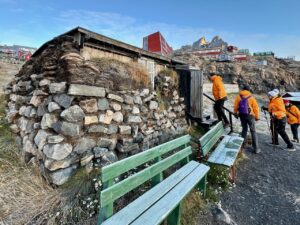
The local teacher told us the shy, smiling youngsters who approached us were so excited by the arrival of tourists, he’d given them the morning off, and an assignment to practice English, their third language after Greenlandic and Danish.
(Much as I wanted to take their photos, I thought doing so would be treating them as curiosities, rather than the delightfully polite and inquisitive people they are.)
THREATS FROM OUTSIDE
According to an article in “Live Science: “An ice-free Greenland happened at lower levels of atmospheric carbon dioxide than present-day levels, so there’s potential for Greenland to be ice-free again, which would raise sea levels drastically.”
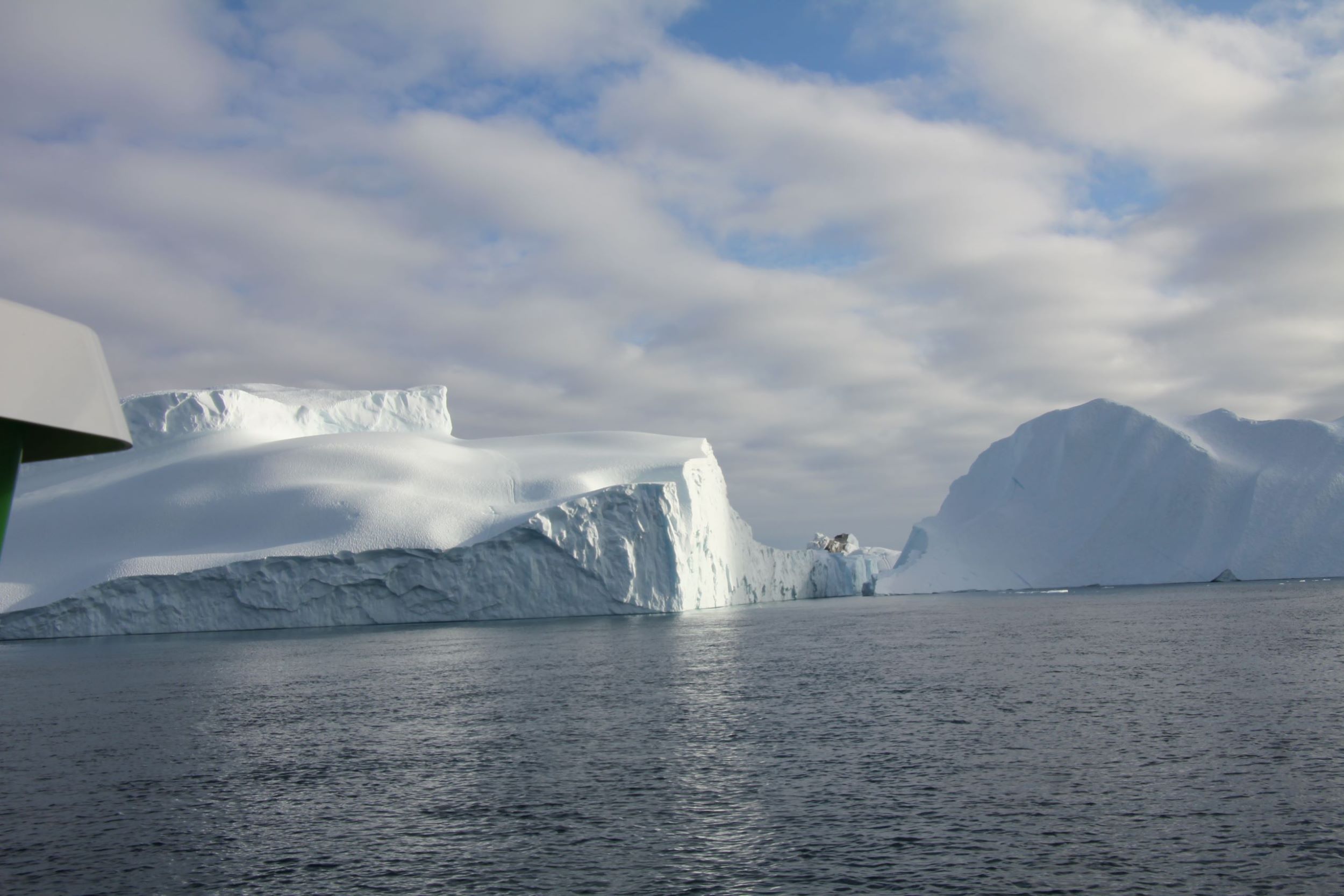
Visiting Greenland has been one of the privileges of my life. Denying that to future generations through humankind’s indifference to Nature would be an unforgiveable sin.
Comments are welcomed. Click CONTACT on the site header.
To receive e‑mail alerts to new posts, Click SIGN-UP on the header.
2 thoughts on “THE SPLENDOUR OF AN UNFORGIVING LAND”
Fascinating, Pizz — and of course also scary. I wonder if we aren’t lucky that we’ve lived most of our lives, rather than having to deal with what the future holds.
You might enjoy my friend’s new book:
https://www.cynthiareeveswriter.com/works.htm
I made it to Iceland this year!